In Pakistan, the religious right has functioned as a potent pressure force on the country’s government since its inception. It is doing so amid this COVID-19 pandemic as well, explains Madiha Afzal. This piece originally appeared in the Washington Post.
Perform your ablutions at home. Bring your own prayer mats, place them six feet apart. Wear masks. Use the provided hand sanitizer. No handshakes or hugs allowed. No talking in the mosque. No one over 50 years old can enter. No children allowed.
These guidelines are part of a list of 20 standard operating procedures that Pakistan’s government issued on April 18, ostensibly in consultation with the country’s religious clerics, for mosque congregations during Ramadan. In reality, the government caved in to the demands of clerics, who earlier that week said that they would refuse to limit Ramadan congregations, despite a growing number of covid-19 cases in the country.
In Pakistan, the religious right — an amalgam of Islamist political parties and the ulema, or religious clerics — has functioned as a potent pressure force on the country’s government since its inception. It is doing so amid this COVID-19 pandemic as well.
Anyone who has been inside a mosque in Pakistan knows these guidelines are impractical to follow. And enforcement is essentially impossible given the sheer number of mosques in the country, each holding prayers five times a day, in addition to extended Taraweeh prayers during Ramadan. Already, a report from a nongovernmental organization in Pakistan’s Punjab province said 80 percent of the mosques it visited last week were violating guidelines. As of Friday, Pakistan reported 17,700 COVID-19 cases, with more than 400 deaths.
The government’s line was that it did not want to take unilateral action, that people would have gone to mosques anyway, and that a consensus or “middle ground” solution was necessary. Prime Minister Imran Khan has also said that because Pakistan is “an independent nation” — a democracy — it cannot force mosque closures. But these excuses only distract from the real story.
Pakistan’s Islamist parties have an outsize influence on government, despite having little in the way of direct electoral seats, due to their street power — or ability to generate huge numbers of followers in the streets for protests — and coalition-building abilities in Parliament. These parties are also used opportunistically by opposition parties and the military as a spoiler against governments in power.
Some argue that Pakistani military dictator Gen. Muhammad Zia-ul-Haq gave the Islamists power in the 1980s in his bid to Islamize the country’s institutions. In reality, Islamist parties have influenced Pakistan’s trajectory from its founding. They pressured the writers of its first constitution to declare it an Islamic republic and add key Islamic provisions to the constitution. Islamists have compelled both military dictators (such as Ayub Khan in the 1960s) and personally secular politicians (Zulfiqar Ali Bhutto in the 1970s) to give in to their demands. Religio-legal institutions such as the Council of Islamic Ideology constitutionally only have advisory powers to Parliament, but they typically step beyond their bounds and mandate.
Over the decades, Pakistan’s population has grown more religious, led by the state’s Islamic vision and actions. In a nationwide Pew poll in Pakistan in 2011, 84 percent of respondents said that they favored making sharia the official law of the land. Some mosque attendees say that prayer is even more necessary in a pandemic. But they also say that the government would have shut down mosques if the pandemic were a truly serious matter.
Pakistan’s state constantly underestimates what it can ask its citizens to do and how it can keep Islamists at bay. Imran Khan, who has burnished his conservative image during his time in politics, has more credibility with Islamists than most. In 2018, this allowed him to take action against a fundamentalist movement that argues for even stricter implementation of Pakistan’s harsh blasphemy laws. But he has had a tough year and a half in office, dealing with Pakistan’s troubled economy and domestic political crises, with the army consistently encroaching on his power. A prominent Islamist led a huge protest against him last fall to try to oust his government. Khan does not want to take on a new fight.
Pakistan’s provinces have given him a bit of an out: They have consistently imposed stricter lockdowns and limited mosque congregations when Khan’s federal government has failed to do so — especially Sindh province, which has banned gatherings during Ramadan as well. Khan is adopting a bit of a Trumpian attitude with states: letting them do the hard work, while he muddles the narrative from the top.
Khan has also said that the government will have no choice but to close down mosques if the guidelines aren’t followed or if mosques become a vector for the spread of the virus. Pakistan’s doctors argue this is inevitable given the guidelines.
Khan may be trying to have his cake and eat it, too, but Pakistan’s army has him in a box: It is reportedly unhappy with Khan’s waffling and gimmicky initiatives in his coronavirus response. It’s hard to imagine that the army will be patient with mosques spreading the virus all over the country.
Ultimately, mosques staying open in Pakistan is simply the manifestation of the political tightrope its civilian institutions have always had to walk as they have contended with both its army and its Islamists. We should hope its citizens don’t have to pay the price.
The Brookings Institution is committed to quality, independence, and impact.
We are supported by a diverse array of funders. In line with our values and policies, each Brookings publication represents the sole views of its author(s).

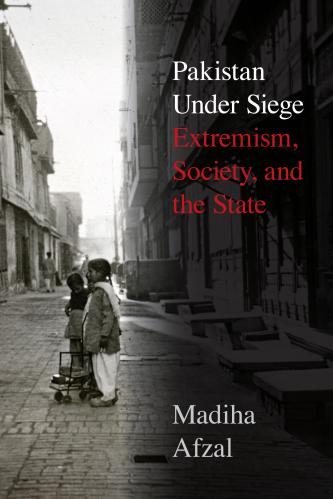
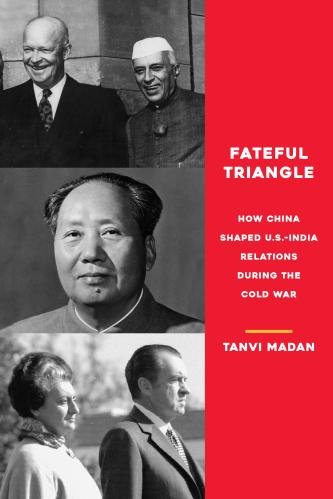

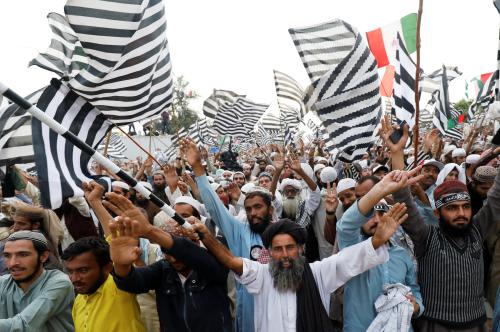
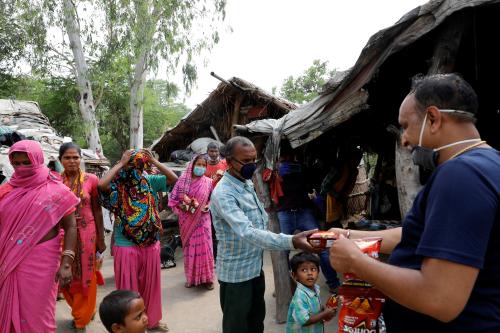

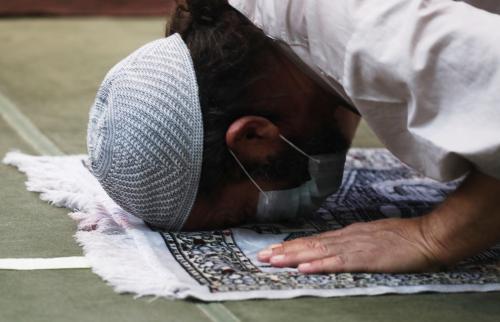
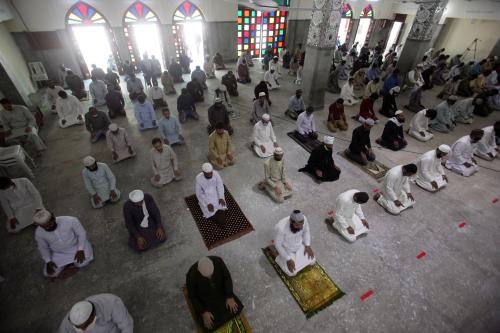
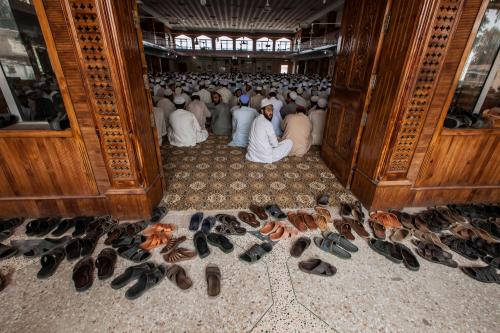
Commentary
Pakistan’s dangerous capitulation to the religious right on the coronavirus
May 4, 2020